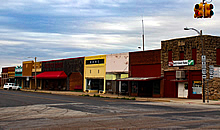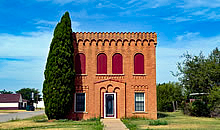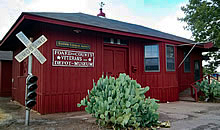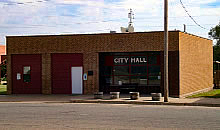Main Menu
Foard County Data
Foard County Communities & Places
Genealogy & History Links by USGHN
Important Foard County Addresses
Sponsors
Foard County Neighbors
Baylor County, Texas Genealogy & History Network
Cottle County, Texas
Hardeman County, Texas Genealogy & History Network
King County, Texas
Other Websites
Welcome to Foard County Texas Genealogy & History Network!
Welcome to the Foard County, Texas Genealogy & History Network. Our purpose is to provide visitors with free resources for genealogical and historical research. To share your genealogy or history information, send an email to txghn@outlook.com and we will happily include it here. For other Texas Counties, visit the Texas Genealogy & History Network state website and go to the appropriate county. Thanks for visiting and good luck with your research! |
|
About Foard County, Texas...

Foard County, in north central Texas on the rolling plains east of the base of the Panhandle, is named for Robert L. Foard, a lawyer and former Confederate officer.
Evidences of prehistoric animals and primitive man have been unearthed in Foard County. In the 18th and 19th centuries, this area was a favorite haunt of Comanche and Kiowa bands, who frequently camped there during the winter. The Comanche chief Peta Nocona staged several raids on white settlements from a favorite winter campground on the Pease River near its junction with Mule Creek; he paid the price on December 18, 1860, when Capt. Lawrence S. Ross and his Texas Rangers attacked his camp and captured his wife, the white captive Cynthia Ann Parker, and her infant daughter. During the 1870s, hide hunters came into the region on the "Buffalo Road" from Henrietta and points east and killed off the great herds that once roamed the region.
With the Indians and buffalo gone, ranchers began moving their cattle herds into the area that is now  Foard County. The first post office in the area was established at Pease City in May 1880. Later in the decade the discovery of copper deposits in the northwestern section of the county resulted in attempts to establish a mine there; Gen. George B. McClellan led an expedition to the site in 1877. One ore shipment was made, but the venture was abandoned in 1887. By 1890 at least three country schools had been established in the area.
Foard County. The first post office in the area was established at Pease City in May 1880. Later in the decade the discovery of copper deposits in the northwestern section of the county resulted in attempts to establish a mine there; Gen. George B. McClellan led an expedition to the site in 1877. One ore shipment was made, but the venture was abandoned in 1887. By 1890 at least three country schools had been established in the area.
In 1891, Foard County was marked off from lands previously assigned to Cottle, King, Knox, and Hardeman County. Witherspoon had circulated a petition for the county's organization and presented it to the state legislature. Although Beaver County was the original name proposed, the county was named for Robert Foard because he was the law partner of an influential member of the committee that reported on the bill to establish the county. Shortly after the county was authorized on March 3, 1891, the new townsites of Foard City and Crowell vied to become the county seat; a third townsite, Sandrock, was also a  contender for a brief time. Crowell was chosen after an election on April 27, 1891.
contender for a brief time. Crowell was chosen after an election on April 27, 1891.
By that time, barbed wire fences had closed the cattle ranges, and farmers had begun to move into the county. Local farmers were establishing orchards; by 1910 more than 10,000 fruit trees (mostly peach) were cultivated in the county. Cattle ranching continued to be a significant part of the local economy, but since 1900 had declined in importance. Agriculture suffered serious setbacks during the 1930s, however, because of the Great Depression and the concurrent Dust Bowl. County population also dropped by more than 15 per cent during the 1930s. The thirties would have been even more difficult for the county, but oil production helped to reduce some of the depression's worst effects.
Although oil leases in Foard County had been sold as early as 1901, no actual discoveries were made  until 1925, when the Thalia field was first drilled; the boom there started in 1929, when the Shell Petroleum Company struck a pool that yielded 500 barrels a day. Beginning in 1933 the Texas Company (Texacoqv) discovered the county's largest oil and gas field twenty miles west of Crowell.
until 1925, when the Thalia field was first drilled; the boom there started in 1929, when the Shell Petroleum Company struck a pool that yielded 500 barrels a day. Beginning in 1933 the Texas Company (Texacoqv) discovered the county's largest oil and gas field twenty miles west of Crowell.
Alongside oil and cattle, agriculture has remained a leading industry of Foard County, of which more than 4,000 acres are irrigated. Cotton, wheat, and other grains are the chief crops while limited commercial production of fruits and vegetables, especially onions and sweet potatoes, take place in the eastern part of the county.
Crowell was devastated by a tornado on April 27, 1942, however it recovered quickly and remains the center of the county's agribusiness and oil economy. Foard County's sole newspaper, the Foard County  News, is published in the town.
News, is published in the town.
The county has a total area of 708 square miles, of which 704 square miles is land and 4 square miles (0.5%) is water. The population recorded in the 1900 Federal Census was 1,568. It peaked in 1930 at 6,315. The 2010 census recorded 1,336 residents in the county.
Neighboring counties are Hardeman County (north), Wilbarger County (east), Baylor County (southeast), Knox County (south), King County (southwest), and Cottle County (west). The county seat is Crowell. Other communities in the county include Thalia, Margaret, Vivian, Foard City, and Rayland.
Foard County, Texas Records
Birth Records - The Texas Department of State Health Services has records from 1903 to present. Records for the last 75 years considered private and will only be provided to certain individuals. To obtain current information on who may obtain a record, how to submit a request and an official request form, see the Texas Department of State Health Services website or write to Texas Vital Records, Department of State Health Services, P.O. Box 12040, Austin, TX 78711-2040.
For older birth records you will have to write to the County Clerk of the applicable county. The existence of birth records prior to 1903 will vary widely from county to county. Local historical societies and genealogy collections in local libraries may be able to provide some information.
Death Records - The Texas Department of State Health Services has records from 1903 to present. Records for the last 25 years considered private and will only be provided to certain individuals. To obtain current information on who may obtain a record, how to submit a request and an official request form, see the Texas Department of State Health Services website or write to Texas Vital Records, Department of State Health Services, P.O. Box 12040, Austin, TX 78711-2040.
Marriage Records - The Texas Department of State Health Services can provide a verification letter of marriage for Texas marriages from 1966 to present. This is NOT a marriage license. To obtain a certified copy of a marriage license you must contact the County or District Clerk in the county or district where the marriage took place.
Local historical societies and genealogy collections in local libraries may be able to provide some information.
Divorce Records - The Texas Department of State Health Services can provide a verification letter of divorce for Texas divorces from 1968 to present. This is NOT a copy of the divorce decree. To obtain a certified copy of a copy of the divorce decree you must contact the County or District Clerk in the county or district where the divorce took place.
Local historical societies and genealogy collections in local libraries may be able to provide some information.




